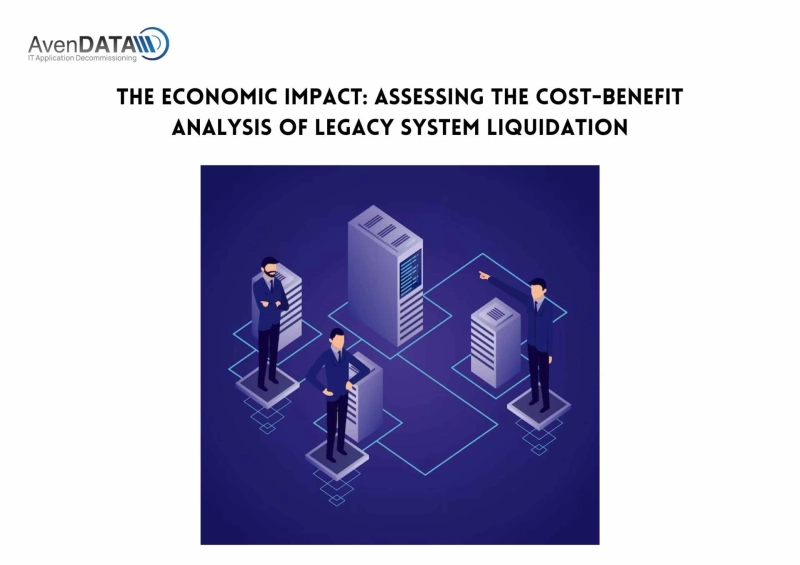Introduction
In today’s rapidly evolving technological landscape, businesses are constantly faced with the challenge of managing legacy systems. As these systems become outdated and hinder operational efficiency, organizations often contemplate the decision of legacy system liquidation. However, such a significant step requires a thorough cost-benefit analysis to assess the economic impact on the organization. In this blog, we will explore the key factors involved in evaluating the cost and benefits of legacy system liquidation.
Understanding Legacy System Liquidation
Legacy system liquidation refers to the process of phasing out and disposing of outdated IT infrastructure and software that no longer serve the organization’s needs. This could involve selling off hardware, retiring software licenses, and transitioning to modern technology solutions.
The Cost Side of the Analysis
1. Maintenance and Support Expenses: Legacy systems often incur high maintenance and support costs. As technology advances, finding skilled personnel to maintain and troubleshoot outdated systems becomes increasingly difficult and expensive.
2. Security Risks: Aging legacy systems are more susceptible to security breaches and cyberattacks. The cost of potential data breaches and security incidents can have severe financial repercussions for an organization.
3. Reduced Efficiency: Legacy systems may lack the capabilities and integrations that modern technologies offer, leading to decreased productivity and operational inefficiencies.
4. Opportunity Cost: By holding onto legacy systems, organizations may miss out on opportunities to invest in innovative and more profitable ventures.
The Benefit Side of the Analysis
1. Cost Savings: Liquidating legacy systems can result in substantial cost savings in terms of maintenance, support, and hardware replacement expenses.
2. Improved Efficiency: Adopting modern technologies can lead to streamlined workflows, automation of processes, and increased employee productivity.
3. Enhanced Security: Upgrading to newer systems with the latest security features can reduce the risk of data breaches and potential legal liabilities.
4. Scalability: Modern systems are designed to handle increasing data volumes and adapt to changing business needs, allowing organizations to scale their operations seamlessly.
5. Competitive Advantage: Embracing modern technology can give organizations a competitive edge in the market, attracting more customers and driving business growth.
Cost-Benefit Analysis: Making an Informed Decision
Conducting a cost-benefit analysis is essential to make an informed decision regarding legacy system liquidation. Here’s how to perform this assessment:
1. Identify Costs and Benefits: List all associated costs and benefits of legacy system liquidation, considering factors like hardware and software replacement, staff training, data migration, potential business disruptions, and improved efficiency.
2. Quantify Costs and Benefits: Assign monetary values to each cost and benefit to estimate the financial impact accurately.
3. Compare the Data: Compare the total cost of retaining legacy systems with the potential benefits of adopting modern technologies. This will help determine if the economic advantages outweigh the costs.
4. Assess the Intangible Benefits: Apart from financial gains, consider intangible benefits such as improved customer satisfaction, brand reputation, and employee morale.
Conclusion
Legacy system liquidation is a significant decision for any organization, and its economic impact plays a crucial role in shaping the future of the business. By conducting a comprehensive cost-benefit analysis, businesses can make informed choices that align with their growth objectives. Embracing modern technologies not only streamlines operations but also opens doors to new opportunities, ensuring sustainable success in a dynamic and competitive market.
#AvenDATA #LegacySystems #ITLegacysystem #ITLiquidation #LegacySystemsLiquidation #DataArchiving



